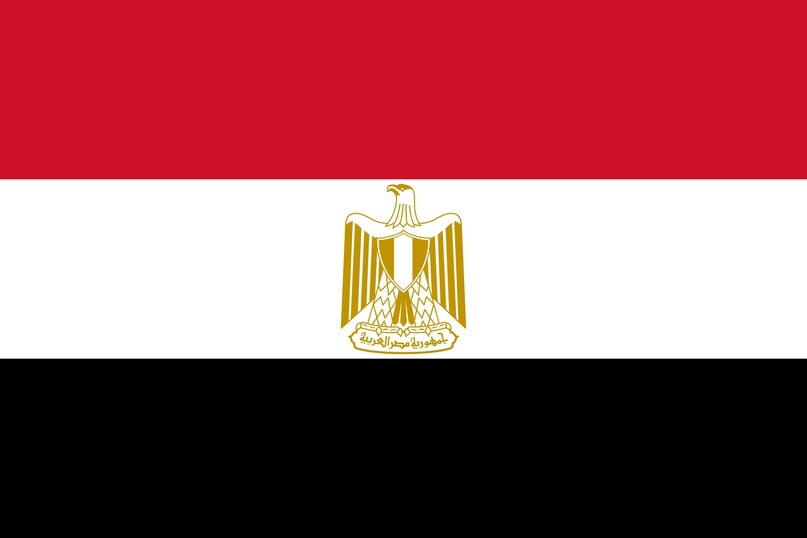Customs peculiarities of Egypt
Date of posting: 28.12.2023
781
Share:
 We continue the series of posts about the rules of crossing the borders of different states. The last post was about South Korea.
We continue the series of posts about the rules of crossing the borders of different states. The last post was about South Korea.
Well, today we will talk about the import and export regulations of Egypt.
When you arrive and leave Egypt, you must pass through customs.
Customs control in Egypt upon entry, as in almost all countries, is located after the passport control and baggage collection. It is carried out selectively.
However, you should not assume that you can violate the import or export regulations. Customs officers have an instinct, and therefore there is a good chance of being caught with something illegal. The punishment for violations of customs regulations in Egypt is quite severe - from 2 to 5 years in prison and/or a fine from 25,000 to 250,000 Egyptian pounds (approximately 810 - 8100 US dollars)
IMPORT:
- What can be brought to Egypt.
As in any country, in Egypt, there are rules according to which it is impossible to import goods of special demand - alcohol and cigarettes - without paying duty. You will be able to import duty-free not more than:
- 2 liters of alcoholic drinks;
- 200 cigarettes or 25 cigars or 200 grams of tobacco;
- Personal items as follows can be brought free from duty:
- Personal clothing;
- Cameras, portable computers, music, radio and video devices, small binoculars and other personal equipment, as well as jewelry in your possession, not intended for sale;
- Medicines in the amount intended for personal use (usually not more than 3 packages of one medicine),
- Perfumes in quantities not exceeding those for personal use. (Total volume less than 1 liter).
- New goods, souvenirs (with tags on them and receipts) worth less than 1,500 Egyptian pounds;
- Sports and scientific awards, medals;
There are no restrictions on the import and export of foreign currency, but cash in any currency equivalent to an amount exceeding 10,000 US dollars must be declared upon arrival and departure. No duties or taxes are charged for the import of currency, even in amounts above $10,000; this is only necessary for accounting and possible subsequent export.
Egyptian pounds can be imported and exported in an amount not exceeding 5,000 pounds.
- What is prohibited to bring into Egypt?
The list of items prohibited for import into Egypt is quite standard and corresponds to global customs practice, however, there are also quite unusual prohibitions:
- Metal detectors (prohibited for use without permission in Egypt).
- Unmanned aerial vehicles (drones, copters, radio-controlled models) without special permission.
- Underwater scooters for scuba diving.
- Information materials that violate the norms of Islam and morality, including pornography and explicit erotica, promoting religious, ethnic, and racial hatred.
- Counterfeit items, fake documents and counterfeit money, including souvenirs.
- Cotton (except clothing for personal use)
- Narcotic and psychotropic substances, and narcotic-containing medications. (To bring drugs containing small doses of narcotic substances, you must have a doctor’s prescription translated into Arabic or English;)
- Any weapons, ammunition, military equipment, spy equipment, hidden cameras.
- Radioactive substances, elements of bacteriological or chemical weapons.
- Animals from the CITES list, any parts of these animals and products made of them. (The text of the convention can be found at https://cites.org/eng/disc/text.php.)
- Seeds and plants.
- Raw potatoes.
- Poultry in any form: live, eggs, poultry meat in any form, even ready-made poultry dishes.
- Any items in quantities that could be considered commercial products for resale.
- Fireworks, rockets and other pyrotechnic products;
- GPS devices, other positioning and tracking devices without the prior consent of the competent authorities of Egypt;
- Laser pointers with power over 5 mW;
- Miniature “pocket” video and sound recording products, for example, pens, medals, glasses and other similar devices;
- Chemicals, incl. pesticides, as well as asbestos and asbestos-containing materials and products.
EXPORT:
- It is prohibited to take out of Egypt:
- Living and dead corals, including souvenirs made of them, as well as any marine life. There is a fine of $1,000 for export. However, you can take out coral souvenirs bought in a store with a receipt.
- Crocodiles and any products made of crocodile leather.
- Ivory products.
- Antiquities and antique without special permission (this includes valuables over 100 years old). If you decide to buy items that look like antiques there must be a receipt.
- Information materials that violate the norms of Islam and morality, including pornography and explicit erotica, promoting religious, ethnic, and racial hatred.
- Counterfeit items, fake documents and counterfeit money, including souvenirs.
- Any items in quantities that could be considered commercial products for resale.
- Narcotic and psychotropic substances, and narcotic-containing medications.
- Any weapons, ammunition, military equipment, spy equipment, hidden cameras.
- Radioactive substances, elements of bacteriological or chemical weapons.
- Animals from the CITES list, any parts of these animals and products made of them.
Ignorance of the law is not an excuse. Therefore, one should take customs regulations with all the seriousness.
We will continue to educate you on the customs rules of the countries that are most often visited by seafarers during crew changes.
Our next post will be dedicated to Belgium.
-----------------------------------------------------------

